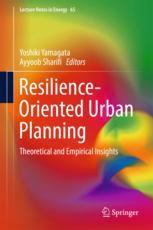

Most ebook files are in PDF format, so you can easily read them using various software such as Foxit Reader or directly on the Google Chrome browser.
Some ebook files are released by publishers in other formats such as .awz, .mobi, .epub, .fb2, etc. You may need to install specific software to read these formats on mobile/PC, such as Calibre.
Please read the tutorial at this link: https://ebookbell.com/faq
We offer FREE conversion to the popular formats you request; however, this may take some time. Therefore, right after payment, please email us, and we will try to provide the service as quickly as possible.
For some exceptional file formats or broken links (if any), please refrain from opening any disputes. Instead, email us first, and we will try to assist within a maximum of 6 hours.
EbookBell Team

0.0
0 reviewsThis book explores key theoretical and empirical issues related to the development and implementation of planning strategies that can provide guidance on the transition to climate-compatible and low-carbon urban development. It especially focuses on integrating resilience thinking into the urban planning process, and explains how such an integration can contribute to reflecting the dynamic properties of cities and coping with the uncertainties inherent in future climate change projections.
Some of the main questions addressed are: What are the innovative methods and processes needed to incorporate resilience thinking into urban planning? What are the characteristics of a resilient urban form and what are the challenges associated with integrating them into urban development? Also, how can the resilience of cities be measured and what are the main constituents of an urban resilience assessment framework? In addition to addressing these crucial questions, the book features several case studies from around the world, investigating methodologies, challenges, and opportunities for mainstreaming climate resilience in the theory and practice of urban planning.Featuring contributions by prominent researchers from around the world, the book offers a valuable resource for students, academics and practitioners alike.